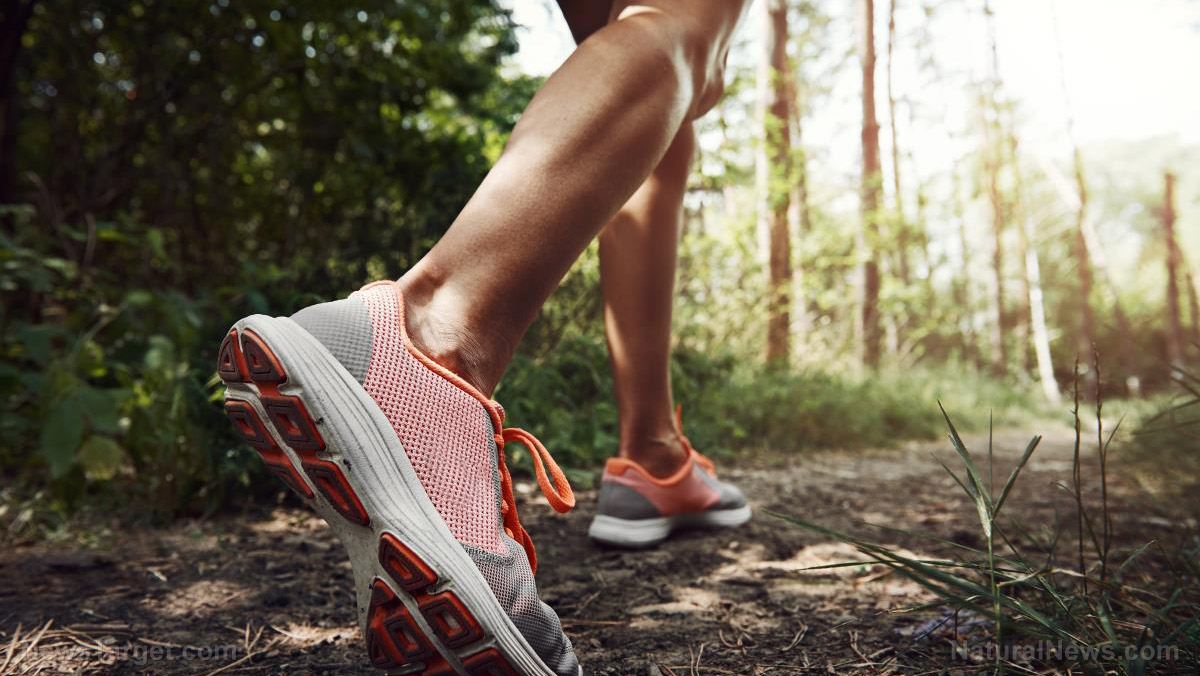For postmenopausal ladies: Try walking downhill after every meal to maintain bone health
10/02/2019 / By Melissa Smith

When women reach the age of menopause, they are at risk of bone loss because of lack of estrogen. Postmenopausal women with diabetes are at a higher risk of bone loss. Fortunately, their bone health may be improved by walking downhill after eating, according to a study by researchers from the University of Michigan. The researchers found that walking downhill after meals can reduce bone resorption, the process in which old bone is broken down and removed from the body.
The researchers conducted the study because they wanted to determine whether eating before or after meals, and walking downhill or uphill, would affect the markers of bone formation and resorption in postmenopausal women. For the study, they investigated 15 postmenopausal women with diabetes in two of five-day-long experiments. One group of participants did not exercise, while the remaining groups walked either uphill or downhill on a treadmill for 40 minutes. They exercised either one hour before or one hour after eating each of two daily meals. They wore special shoe insoles to measure the impact of their walking.
The researchers measured the women’s blood every hour to look for markers of bone formation and resorption. They also measured their blood sugar and insulin levels.
After analyzing the results, the researchers found that walking downhill after eating was the most effective way to reduce the breakdown of collagen, a type of protein that helps build bone. Exercising after meals may also help improve nutrient absorption. Because most treadmills are only adjustable upward, the researchers suggested putting cement blocks underneath the treadmill or walking down the stairs.

“The best exercise for your bones is the weight-bearing kind, which forces you to work against gravity. When you walk downhill, the pull of gravity is greater,” explained Katarina T. Borer, Ph.D., the study’s lead researcher.
Borer hopes that in the future, postmenopausal women with diabetes might be able to reduce their need for osteoporosis medication by walking downhill after eating. The researchers noted that more studies are needed to determine exactly how much bone mineral postmenopausal women are losing and how much exercise they need to reduce their medication. The findings of the study were presented at the ENDO 2019, the annual meeting of the Endocrine Society, in New Orleans, LA.
Other ways to preserve bone health after menopause
Women can minimize bone loss after menopause by making healthy lifestyle changes. One of these is consuming more calcium, which is one of the most important minerals for bone health. Calcium is a key component in bone composition. You can get calcium from leafy green vegetables like broccoli, cabbage, and kale; milk and dairy products, and soy and rice milk.
Your body also needs enough vitamin D to absorb calcium and integrate it into the bones. Sunlight enables the skin to produce vitamin D, but too much sunlight exposure can be harmful. You can get vitamin D from foods like egg yolks, milk, liver, and saltwater fish.
Another way to maintain bone health is to avoid consuming too much sodium. This is because the kidneys filter out calcium with sodium, so more calcium is excreted in the urine. Avoid salty foods, table salt, and any source of sodium.
In addition, getting enough vitamin E, particularly tocotrienol, can also improve the bone density of postmenopausal women, according to a study published in the journal Osteoporosis International.
Sources include:
Submit a correction >>
Tagged Under:
#nutrition, alternative medicine, bone density, bone health, bone loss, diabetes, disease treatments, exercise, fitness, Menopause, natural cures, natural medicine, nutrient absorption, osteoporosis, physical activity, postmenopausal women, postmenopause, prevention, slender, walking, women's health
This article may contain statements that reflect the opinion of the author





















